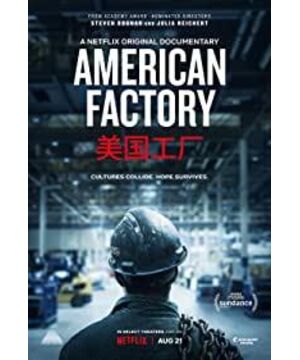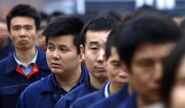At the beginning, my expectation was to see if there was a conflict between American culture and Chinese culture, but it was not a cultural conflict. It is a game between capital and workers; it is clear that workers are the exploited, and capital is the exploiter, like a mayfly shaking a tree.
Three are the most impressive:
1. Americans protest against the unsafe working environment and need to form trade unions to protect their rights; on the other hand, Chinese employees work 12 hours a day and take 1-2 days off a month; I don’t know that they envy Americans and fight for their rights. Freedom is still pity the hard work and hard work of the Chinese people;
2. In the end, people on both sides actually become vulnerable groups, and there is no sense of existence in front of the robotic arm that has no feelings and no sense of fatigue; even if you are an employee who has worked hard in the factory for 20 years, you are also affected by the advancement of technology. eliminated. It's ironic, with mixed feelings inside.
3. Mr. Cao's sigh, he doesn't know if he has merit or deeds. If he wants to develop, he must pay a price. Cicadas and frogs have replaced the noisy factories. The times are progressing, and so many people will not be needed to work in the fields. Human beings will only develop and serve mankind with more advanced technologies. Perhaps Mr. Cao will always struggle in his heart. Capital is bloodthirsty, and worshipping Buddha or donating can exchange for inner peace and comfort, which is also a reaction.
Robotic arms, AI technology, the changes and pains brought about by these technological advances have made many people lose their traditional jobs. But isn't human beings constantly advancing and developing at this time of technological progress? So after reading it, it brings a strong sense of impact, where is my generation, and only by keeping up with the torrent of the times, will I not be eliminated.
View more about American Factory reviews








